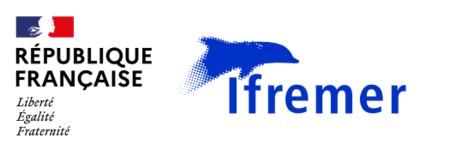Biotechnology and Marine Resources research unit
The Biotechnology and Marine Resources (Biotechnologies et Ressources Marines — BRM) aims to develop knowledge and utilisation of marine biological resources through biotechnology and bioprospection and to contribute to the optimised use of products provided through sustainable fishing and aquaculture.
Organisation
The Biotechnology and Marine Resources unit, located in Nantes, is made up of two research laboratories:
- The Marine Molecules and Microbial Ecosystems for Biotechnology laboratory (Laboratoire Écosystèmes microbiens et molécules marines pour les biotechnologies — EM3B) focuses on the following scientific topics: determination of bacterial communities (and their metabolisms) in marine ecosystems and the mechanisms of regulation and signalling relating to the interactions between members of these communities for the control of these bacterial communities.
The laboratory houses collections of marine bacteria of diverse origins (hydrothermal vents, seafood products, etc.) and contributes to their application in various fields (health, chemistry, human nutrition and environment). The unit explores the use of molecules from bacterial metabolism, in purified native, semi-purified or modified form (polysaccharides, enzymes, peptides) and the use of bacteria for their metabolic activity in situ (food preservation, fermentation, probiotics). - The Algal Physiology and Biotechnology laboratory (Laboratoire Physiologie et Biotechnologie des algues — PBA) studies the physiology of micro-algae as an essential source of food in aquaculture and a potential source of novel molecules, on wild and selected strains. The central scientific issue behind these studies is “what are the strategies and the mechanisms of microalgal response to the environment?”
Expertise
Biotechnology is the collection of methods and techniques that use living organisms (microorganisms) or derivatives thereof (enzymes, etc.) as a tool. ou des parties de ceux-ci (enzymes…) to make or modify products or processes The OECD defines it as “the application of scientific and technology to alter materials using living organisms for the transformation of materials to produce goods and services.” Marine biotechnology is the use of biotechnology to alter or preserve marine resources or the use of marine organisms or derivatives thereof to alter materials from diverse origins.
The Biotechnology and Marine Resources unit harbours varied expertise to develop innovations in this field:
- Microbiology: working strain collection (bacteria from marine biodiversity), biopreservation and knowledge of microbial ecosystems;
- Ecophysiology and microalgae: algal strain collection, microalgae production strategies, cultivation parameters, modelling;
- Molecular biology: applied to product traceability and molecular taxonomy of marine organisms, study of microalgal metabolism;
- Chemistry/Biochemistry: analysis and characterisation of marine products (lipids, proteins, sugars), structural analysis of marine polysaccharides and biodegradable polymers;
- Sensory analysis: sensory analysis facilities for the characterisation of marine products;
- Process engineering: fermentation, enzymatic hydrolysis, reactive extrusion bioprocessing.
Partnerships
The unit is involved in directing the research federation CNRS IUML ‘Sea and Coasts University Institute’ (Institut Universitaire Mer et Littoral). It is also a member of several research networks (FED Bioregos, GlycoOuest, BiogenOuest, RMT Florepro, etc.). Through various research projects, significant national partnerships have been created with INRIA Biocore and Dyliss teams as well as with the UMR Secalim. Other fruitful collaborations with the Universities of Nantes-Angers-Le Mans (MMS,LINA…), Marseille, Toulouse and Bordeaux, UPMC-Roscoff and UPMC-LOV-Villefranche, ONIRIS, Liens, INSA, ISVV, INRA in Narbonne, Clermont-Theix and Jouy-en-Josas, ANSES in Boulogne-sur-Mer, and on the international level with the Cawthron Institute (New Zealand), Universities of Brighton (GB), Ghent (Belgium), Auckland (New Zealand), Laval (Quebec), and DUT-Food (Denmark), CSIRO (Tasmania), Matis (Iceland), NTNU et Nofima (Norway), etc. Applications have been developed in conjunction with or through sub-contracting with private industry or technical centres, such as ACTIA or PARM (Martinique).
